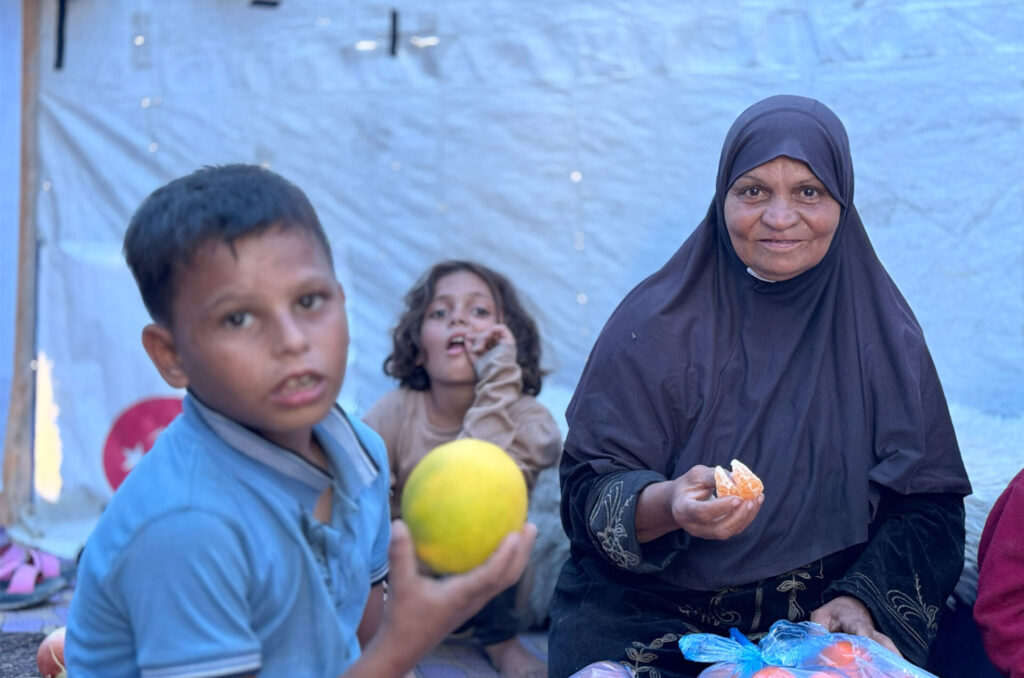Jun, 2017
Anera delivered food parcels to Syrian refugees in Lebanon and poor families in Gaza, helping them celebrate the holy month.
Breaking the Fast in Gaza City
Heba uses the heat of the sun to warm bathwater for her two young children. It’s a necessity in Gaza, where poverty is rife and water and electricity are scarce.
After Heba’s family fell into debt, they moved into a makeshift home with relatives in the Zeitoun area of Gaza City. There the living conditions are poor and unsanitary. “We’ve been attacked by rats many times,” said Heba. “We live in the middle of an abandoned farm where we lack basic life essentials.”
Heba’s husband Mahmoud works in a bakery that sells a special Gazan treat, crunchy kershala cookies. “He is paid $7 per day and he’s sometimes allowed to take home leftovers at the end of the day. That’s what we’ve eaten for so long,” added Heba.
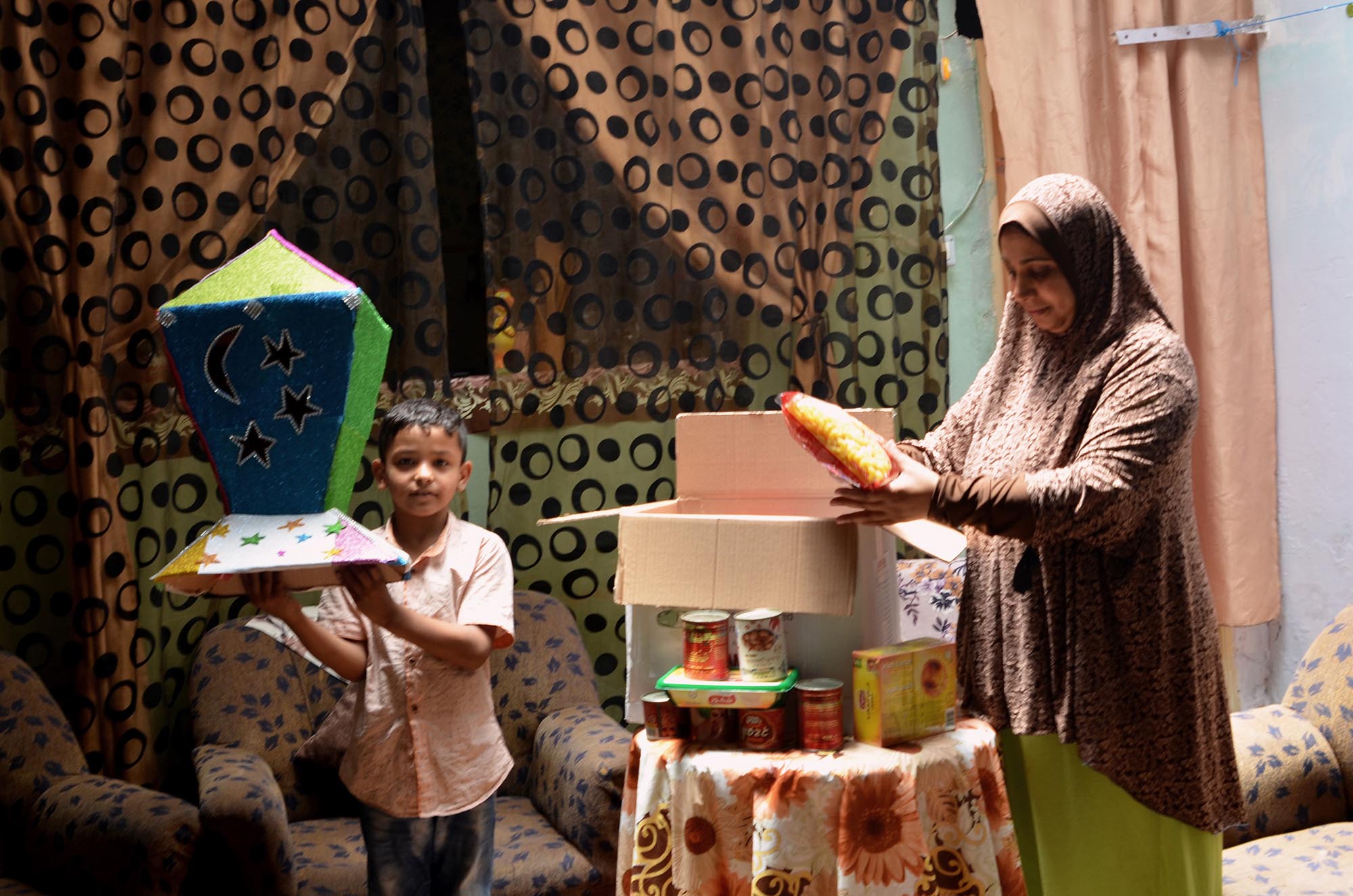
However, kershala cookies are not traditionally eaten during Ramadan, when other holiday sweets take the spotlight. As a result, Mahmoud has been out of work for nearly a month. Now the family has lost the minimal income they had. “Life is so tough in Gaza,” said Heba.
In Gaza, 10 years of continuing blockade have devastated the economy. Poverty has increased throughout the territory, with traditional jobs like fishing and farming becoming nearly impossible to sustain. Gaza is also experiencing an electricity crisis, which has long afflicted its population but has recently worsened. Now the people of Gaza receive less than three hours of electricity per day. Added to this is the scarcity of clean water. Not only do many poor families lack water connection, but it’s estimated that over 90 percent of all water is unsafe for consumption.
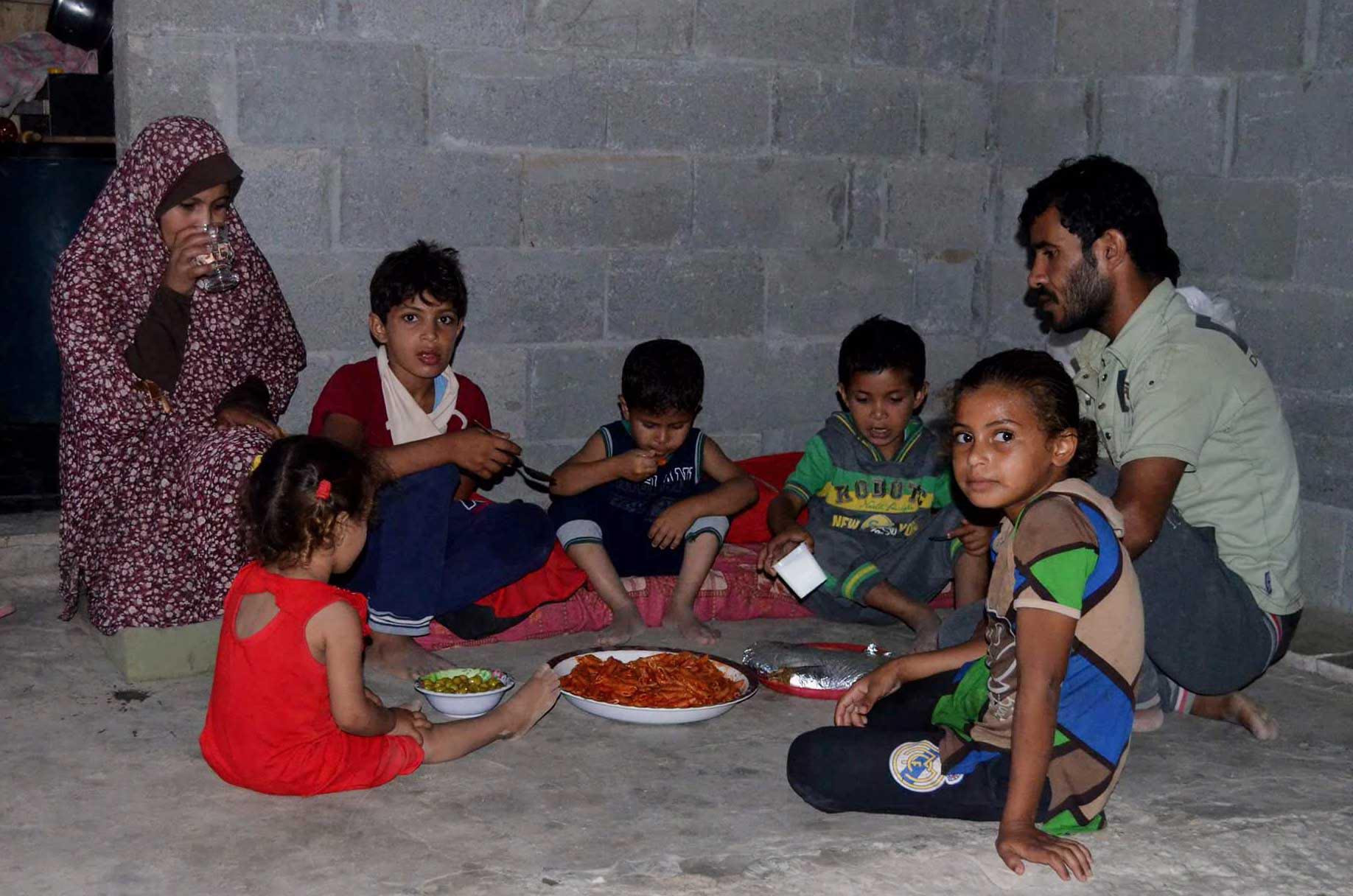
To help alleviate some of the countless struggles in Gaza, Anera is delivering Ramadan food packages to poor families. They include staples like lentils, chickpeas, cheese, canned meat, rice and cooking oil, as well as treats like sugar, tea, halawa and tahini.

In Gaza, 10 years of continuing blockade have devastated the economy.
Food packages help impoverished families like Heba’s enjoy decent meals after long days of fasting, and allow them to maintain basic caloric needs. With her husband out of work and Ramadan in full swing, the food packages couldn’t have come at a better time.
Food for Palestinian and Syrian Refugees with Special Needs
During Ramadan, the streets and markets of Lebanon are full of delicious foods, lights and decorations. Strangers and neighbors are infected with the holiday spirit and bid each other the traditional Ramadan Kareem. The scent of syrupy pastries like qatayef and roasting kebab make every iftar (evening feast) a meal to look forward to.
However, some families can’t celebrate with the same festivity. For Palestinian and Syrian refugees, who live in abject poverty, it’s hard to keep up with all the traditional feasts and festivity of the holy month.

The financial burden is particularly harsh because they all have at least one family member with disability.
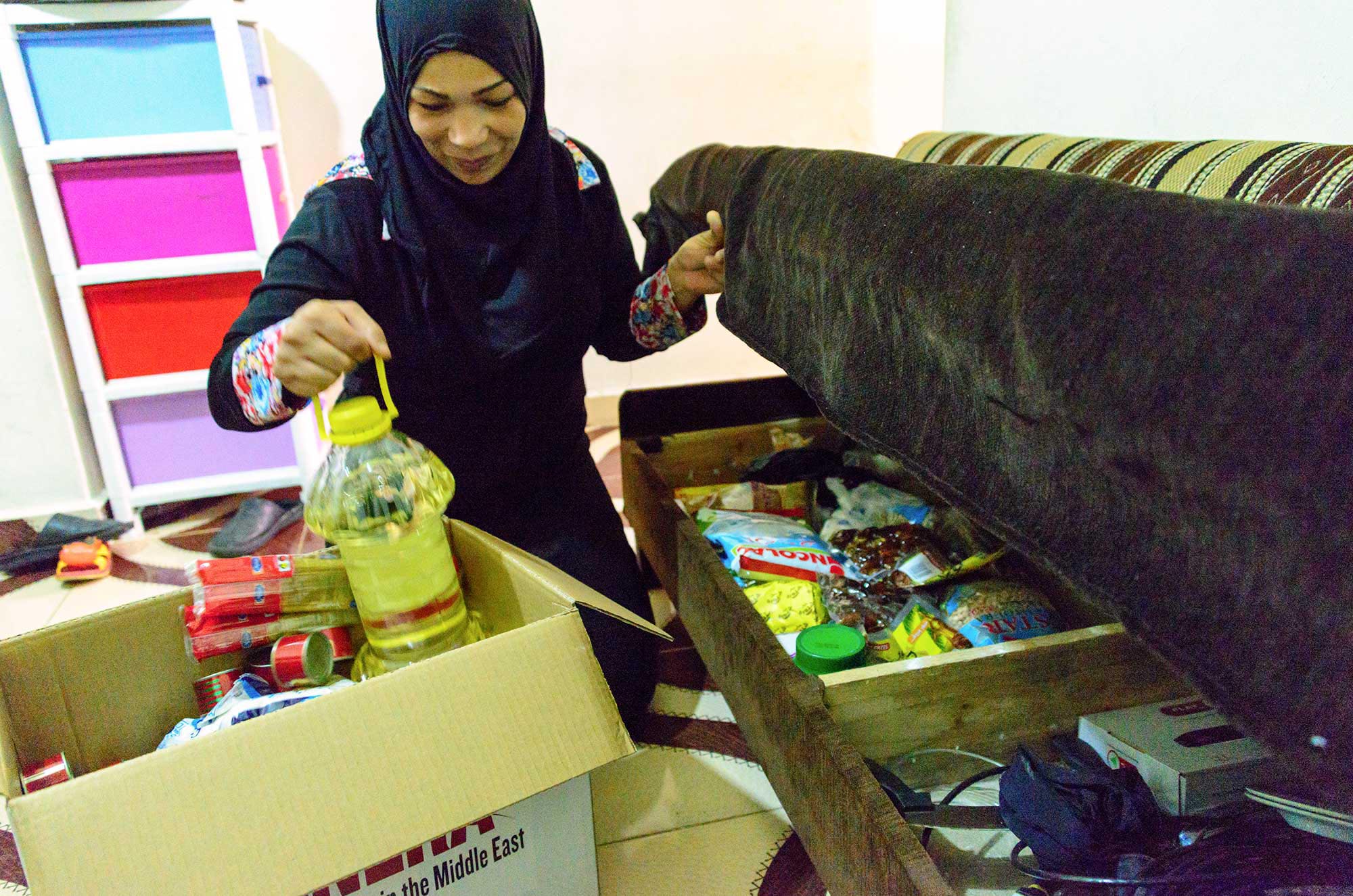
This Ramadan, Anera supported 600 families in two refugee camps, Beddawi and Nahr El Bared. Recipient families in both camps were delivered food packages containing a month's worth of meals—cooking oil, rice, beans, chickpeas, dates and other staples.
What’s more, the financial burden on these families was particularly harsh because they all had one or more family members living with disability.
“There are around 900 persons living with disability in Nahr El Bared and Beddawi Camps, we distributed Ramadan parcels to the most economically challenged families,” said Ahmad Daoud, Rehabilitation Coordinator at Community Based Rehabilitation Association (CBRA). Anera has partnered with CBRA, a specialized local organization that serves people living with disability, to distribute the Ramadan food parcels just before the onset of the Holy Month.
A Full Holiday Table for Refugee Families with Special Needs
“My husband has difficulty finding work, as it’s very hard for Palestinian refugees to find long-term employment here,” said Samira. “These food items have come just in time. I’ve already opened the juice jug in preparation for today’s iftar.”
Daoud said that the families were “very satisfied with the generous food parcels, and distributions have been carried out in a timely manner.” He wished all a blessed Ramadan.
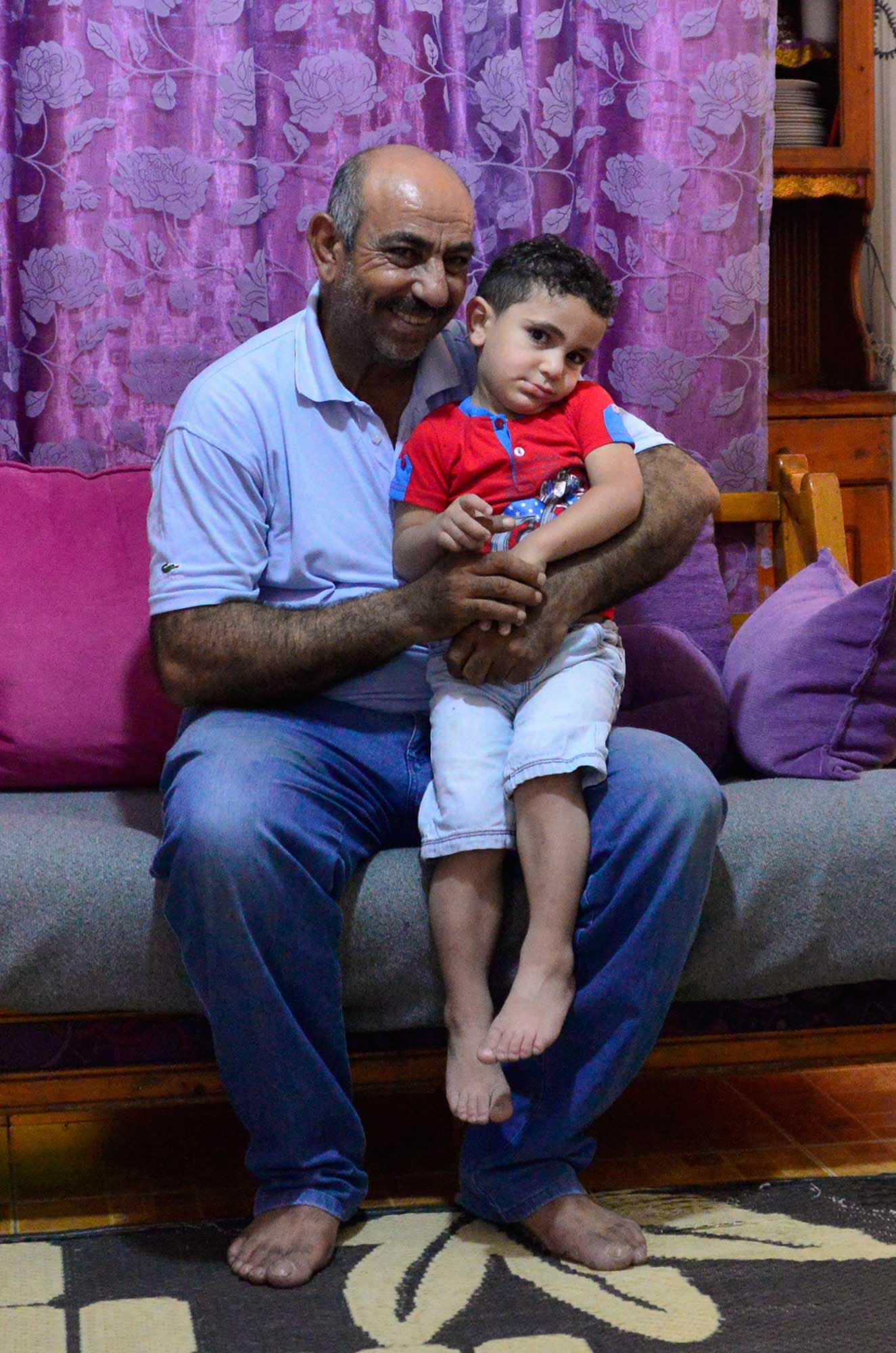
Mohammad is a Palestinian refugee originally from Nahr El Bared camp. He fled to Beddawi in 2007 in light of the clashes in Nahr El Bared. To this day, his house hasn’t been rebuilt and he still resides with his wife and five children in Beddawi.

The high cost of medical treatment for my children makes it very difficult to keep up with the needs of the family.
“The high cost of medical treatment for my children makes it very hard for us to keep up with the needs of the family,” said his wife, Samira. Thirteen-year-old Yehia was born with hypoxia, a condition where the body suffers from oxygen deficiency, that affects his development. Afnan, 15, was diagnosed with cancer at the very young age of six, affecting her physically and emotionally.

